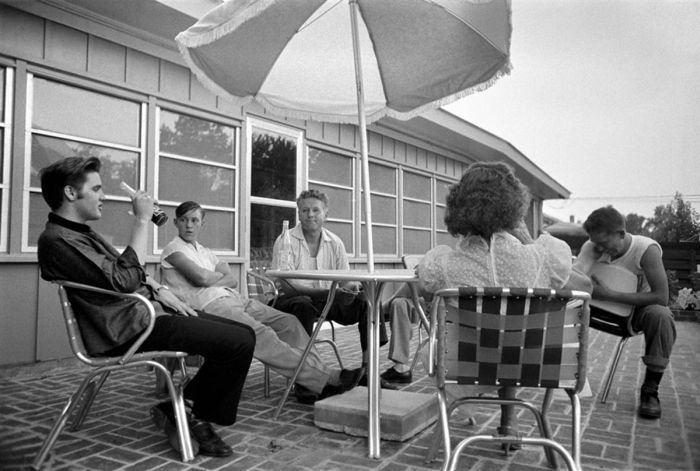|
|
Elvis Presley
|
On July 13, 1976, Vernon Presley—who had become deeply involved in his son's financial affairs—fired "Memphis Mafia" bodyguards Red West (Presley's friend since the 1950s), Sonny West, and David Hebler, citing the need to "cut back on expenses". Presley was in Palm Springs at the time, and some suggest the singer was too cowardly to face the three himself. Another associate of Presley's, John O'Grady, argued that the bodyguards were dropped because their rough treatment of fans had prompted too many lawsuits. However, Presley's stepbrother David Stanley has claimed that the bodyguards were fired because they were becoming more outspoken about Presley's drug dependency. Presley and Linda Thompson split in November, and he took up with a new girlfriend, Ginger Alden. He proposed to Alden and gave her an engagement ring two months later, though several of his friends later claimed that he had no serious intention of marrying again.
RCA, which had enjoyed a steady stream of product from Presley for over a decade, grew anxious as his interest in spending time in the studio waned. After a December 1973 session that produced 18 songs, enough for almost two albums, he did not enter the studio in 1974. Parker sold RCA on another concert record, Elvis: As Recorded Live on Stage in Memphis. Recorded on March 20, it included a version of "How Great Thou Art" that would win Presley his third and final competitive Grammy Award. (All three of his competitive Grammy wins—out of 14 total nominations—were for gospel recordings.) Presley returned to the studio in Hollywood in March 1975, but Parker's attempts to arrange another session toward the end of the year were unsuccessful. In 1976, RCA sent a mobile studio to Graceland that made possible two full-scale recording sessions at Presley's home. Even in that comfortable context, the recording process was now a struggle for him.
|
|









